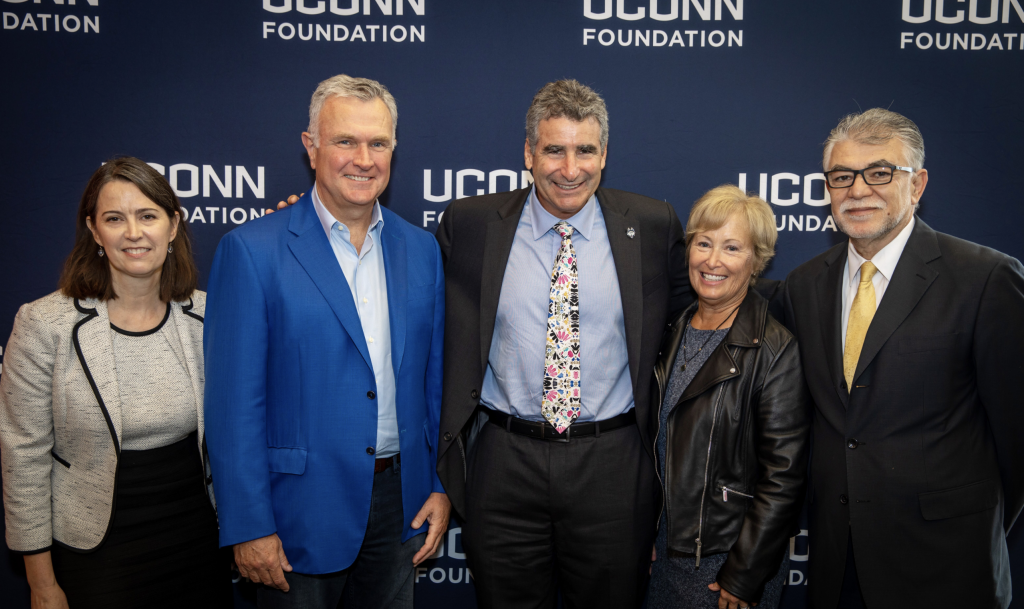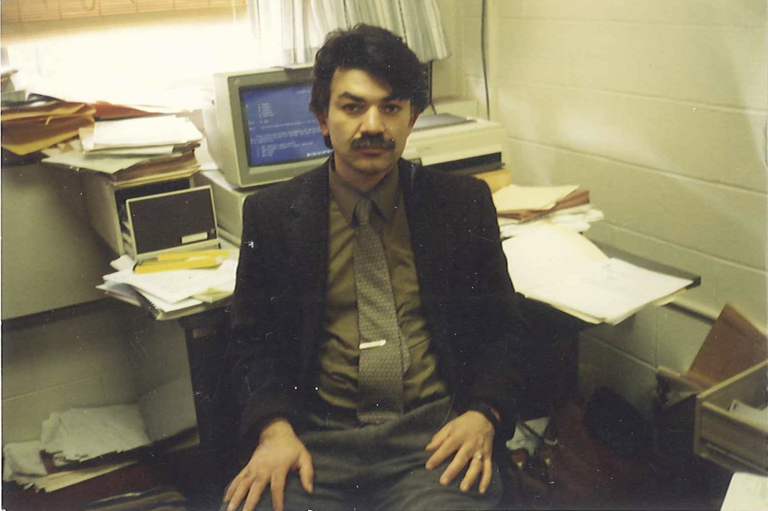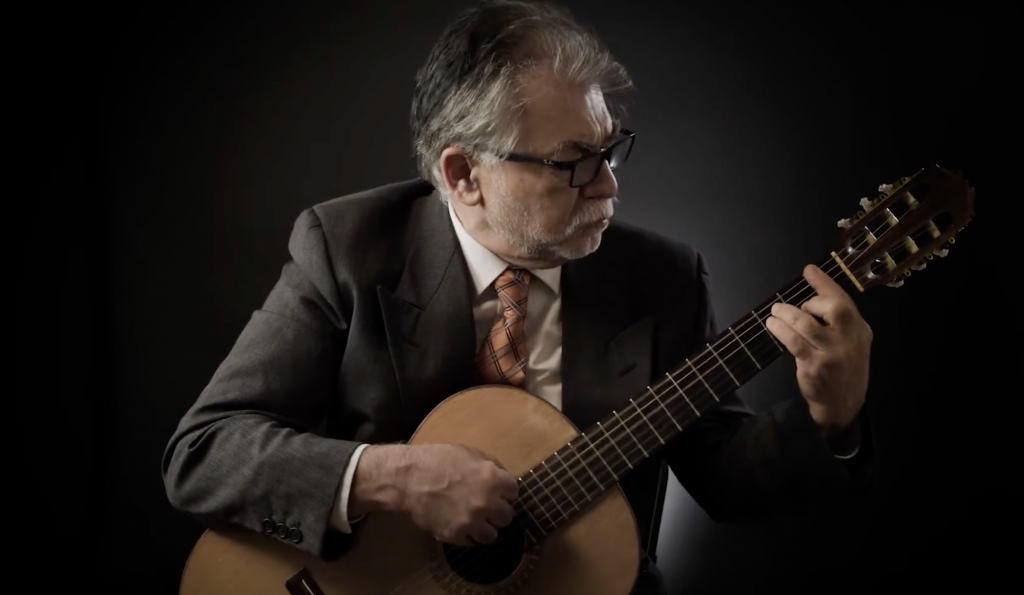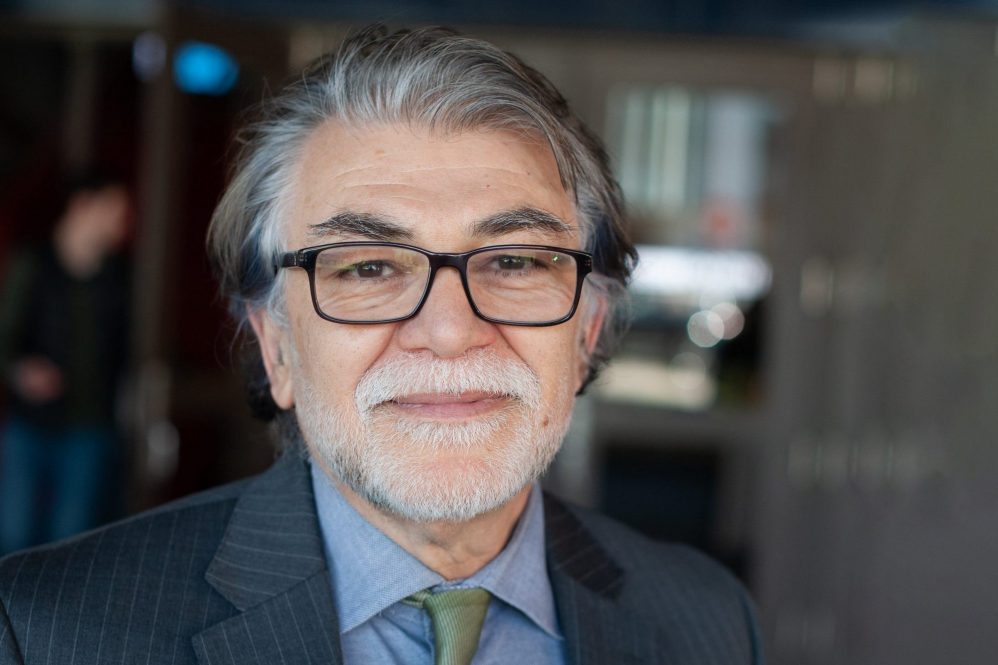You got to know when to hold ’em
Know when to fold ’em
—Kenny Rogers, The Gambler
After 12 years leading the direction of UConn’s College of Engineering (CoE), Dean Kazem Kazerounian is heeding advice from one of his favorite musicians, Kenny Rogers.
“At some point, you have to know when to fold,” he says. “There’s a time to hold ’em and a time to fold ’em. This is my time for change.”
This August, Professor Kazerounian—or simply “Kazem” as he’s fondly known in the CoE’s Deanery—will step down from his role as dean and return to research and teaching. He’s already developing new courses including one on the intersection of advanced technologies and humanity, as well as advance his research on computational kinematics in the School of Mechanical, Aerospace and Manufacturing Engineering.
“While Kazem has made an extraordinary impact to the College of Engineering as a dean, the students will really benefit by having access to his wealth of experience and knowledge, and our faculty will gain a formidable mentor,” says Horea Ilies, school director and professor of mechanical engineering. “He’s equally respected as an instructor and a researcher as he is as an administrator.”
The Dean’s Doings…
As dean, Kazerounian leads strategic initiatives focused on expanding the CoE’s research enterprise, institutional advancement, educational innovation, and technology commercialization. He’s consistently striving to ensure growth in all engineering programs by focusing on three pillars: developing successful students, maintaining research excellence, and contributing to the economic output and development in the state of Connecticut.
He works with the UConn Foundation to secure private and corporate donations for the college including the College of Engineering Dean’s Fund, which provides resources, program support, and scholarships for engineering students. But the majority of his time is consumed by “running an enterprise” that consists of nearly 200 faculty, 152 staff members, and about 5,000 students. He oversees all academic programs, seven departments and 20 centers.
“The College of Engineering is one of the best engineering schools on the East Coast in so many ways,” Kazerounian says. “I always say we are the Berkeley of the East. We offer a wonderful public engineering program that’s very comprehensive, and being a land grant university, there’s a lot on our shoulders,” Kazerounian says. “It’s critical that we produce engineers who contribute to the state’s economic development so we need to keep going down that path.”
Leaving a Legacy
During Kazerounian’s tenure as dean, enrollment in the College of Engineering has more than doubled, research expenditures have quadrupled, and industry partners offer 46 full scholarships for students. The School of Engineering—as it was called since 1940—was elevated to a College last November, as was Kazerounian’s own department; Mechanical Engineering is now the School of Mechanical, Aerospace and Manufacturing Engineering.
And, as part of UConn’s Next Generation Connecticut initiative to expand research in STEM fields, Dean Kazerounian’s tenure overlapped the opening of the Engineering and Science Building in 2018, the Innovation Partnership Building in 2018, and the state-of-the-art Science 1 building in 2023, which houses the Materials Science and Engineering Department.
No small feat, but Kazerounian humbly shares the credit with his colleagues.
“Really, the blessing of being the Dean is that you’re surrounded by amazing, brilliant administrators, faculty and staff who put forth the effort to improve our programs and impact students and people’s lives,” he says.
Among Kazerounian’s staff is Kylene Perras, assistant dean of operations and strategic initiatives for the CoE. They met in 2011 when Perras worked in advancement at the UConn Foundation, and in 2015, Kazerounian hired her to work in various capacities in the CoE.
“Humility is a rare trait in leadership, but Kazem exemplifies this effortlessly, despite his impressive achievements,” Perras says. “He heads the College of Engineering with his wisdom, inspiring us not only with his vision but also by rolling up his sleeves working alongside us, creating a culture of mutual respect. This, combined with his thoughtful approach to decision-making and genuine concern for our well-being individually and collectively in the College of Engineering has made him not only a great leader, but also a mentor we trusted and admire.”

Claire Tremont, manager of communications and digital strategy for UConn Engineering, also admires Kazem for his humble mannerisms. “In all meetings I’ve had with Kazem, he thanks me for giving him some of my time. I know he does it with others, too. The value he places on relationships is noticeable.”
Kazerounian “is all about relationships,” says Donald Swinton, senior director of development for the College of Engineering/University of Connecticut Foundation. “From the moment he took on the role as associate dean … he started a constant mission to find partners who could help raise up the College of Engineering. It started with companies like Pratt & Whitney and Hamilton Sundstrand (now Collins Aerospace). As dean, Kazerounian was constantly doing one visit, one plant tour, one coffee/lunch/dinner after another—building relationship after relationship with our alumni and executives.”
His knack for relationship building led to years of negotiations that birthed the United Technologies (now Pratt & Whitney) Institute of Advanced Systems Engineering with $10 million in funding; the Krenicki Institute for Arts and Engineering (in partnership with then Dean of Fine Arts Provost Anne D’Alleva), with $5 million in funding; and the National Institute for Underwater Vehicle Technology with $90 million (over 5 years) in funding. He supported growing the Eversource Energy Center to a $30 million enterprise; launched the Comcast Center of Excellence and the Altschuler Cybersecurity Laboratory, and helped enable UConn to land the modern day Thermo Fisher Scientific Center for Excellence in Microscopy and Materials Characterization, a similar partnership with Zeiss, and several others in the Innovation Partnership Building (IPB).
His work also broadly affected students.
“Acutely aware of undergrad students’ unhappiness with the required engineering ethics requirement that generally fell to an introductory philosophy course,” Swinton says, Kazerounian began talks with the Gladstein Family Human Rights Institute that resulted in the Engineering for Human Rights Initiative, which addresses human rights implications of the most significant challenges in engineering and technology. “Students from all parts of UConn were introduced to courses with case studies, experiential learning and content from the hard sciences, social sciences and humanities,” Swinton recalls.
This radical idea firmly connected engineering to the social sciences and broadened faculty collaborations throughout UConn—now involving 60 faculty.
Of his list of accomplishments, Kazerounian is most proud of his efforts in diversity and inclusion. In 2019, Women Engineering magazine recognized UConn’s College of Engineering as a “Top 20” leader in the nation for fostering diversity and inclusion among its student and faculty population. And in 2016, The Washington Post reported that UConn saw the largest five-year gain in female engineering graduates among 90 public institutions nationally.
His work with Betsy ’81 (CLAS) and chemical engineering major Mark Vergnano ’80 (ENG) brought Engineering’s DEI efforts to a new level with the Vergnano Institute for Inclusion and the Vergnano Chair for Inclusion.
“We’ve really worked to close the gender gap in engineering,” Kazerounian says. “We’re really leading many institutions in that regard.”
Four Decades at UConn (and Counting)

In 1984, Kazerounian graduated from the University of Illinois at Chicago with a Ph.D. in mechanical engineering. He was married with two children, and applied to four institutions, of which three granted him an interview and consequently an offer.
Being a political refugee from Iran, he didn’t know much about different parts of the country, so he headed to his local library to look at photographs of the three places—UConn being among them.
“The foliage grew on me and my wife,” Kazerounian recalls. “We came here and fell in love with Connecticut.”
Kazerounian accepted an assistant professor of mechanical engineering role, but didn’t intend to stay.
“My future [at UConn] was probably a couple years and not more than that,” he recalls. “But UConn is a wonderful university in a beautiful part of the country with amazing colleagues and above all, really interested, passionate students. I couldn’t ask for more in life.”
Forty years later, he’s still a Husky. And he doesn’t mind reflecting on his extensive career that led him to the Deanery.
Kazerounian—renowned worldwide for his significant contributions to kinematics, robotics, gear systems, and protein-based nano mechanical devices, “embodies the spirit of a quintessential systems builder, a trait evident in everything that he does,” Ilies says. “From courses that push out-of-the-box thinking to his pioneering multidisciplinary research focused on understanding and predicting protein motions using tools from theoretical kinematics, his collaborative approach extends to research, scholarship, student and faculty mentorship, and leadership. In fact, his systems thinking approach has been on clear display as a leader of the College of Engineering, where he has empowered the collective to produce, create, and execute compelling visions for UConn Engineering.”
After teaching mechanical engineering for 10 years, Kazerounian began a 30-year path in leadership roles. He spent four years as group chairman for Design, Manufacturing, and Systems faculty in Mechanical Engineering; two years as associate dean for research and outreach and director of the Advanced Technology Institute (ATI); one year as director of graduate studies in mechanical engineering; another four years as group chairman for Design, Manufacturing, and Systems faculty; three years as associate dean for research and strategic initiatives; and then in June 2012, he became dean of the present College of Engineering.
Outside of his work as dean, Kazem is a member of the Connecticut Academy of Science and Engineering (CASE), a fellow of the American Society for Mechanical Engineers (ASME), and a fellow of the American Institute for Medical and Biological Engineering. He has also been a consultant on the design of consumer products to OSIM International in Singapore, a consultant on gear systems dynamics to Pratt & Whitney and a consultant on ultra-precision, high-speed automation systems to the Singapore Productivity and Standards Board.
For ASME, he’s chaired the Design Division Executive Committee and several major national and international conferences and technical committees. He has served on the editorial boards of the ASME Applied Mechanics Review and ASME Journal of Medical Devices and was associate editor of the ASME Journal of Mechanical Design and the Journal of Mechanisms and Machine Theory. In 2006, he received the ASME Design Division Mechanisms and Robotics Award—a lifetime achievement award—in recognition of cumulative contributions to the field of mechanisms design and theory.
And during all this time, he continuously worked alongside students, mentoring them—“hundreds of them, but who’s counting,” he says — on their educational journey in engineering.
Kazem’s Commitment Continues

As Kazerounian prepares to leave his prestigious position, the Office of the Provost is already looking for the next dean of the College of Engineering. A search committee, made up of faculty, directors, industry leaders, and one undergraduate student, is hosting final interviews this month. More information on the candidates is on the Academic Leader Searches website.
Without the rigorous role of dean, Kazerounian is looking forward to spending more time with his grandchildren and exploring his other passion in life—music. As far back as his teenage years, Kazerounian enjoyed playing classical guitar, and even performed professionally. “I was very serious about it then, and I had to choose between teaching classical guitar or engineering after college.” (Watch a short video of Kazem playing a guitar in this UConn Foundation conversation video.)
One thing is for sure: Kazerounian will remain dedicated to the College of Engineering.
“As long as my health allows, I want to continue supporting the students and the college,” he says. “And retirement? I haven’t thought about that yet. I’ll probably start thinking about it when I’m 97.”



